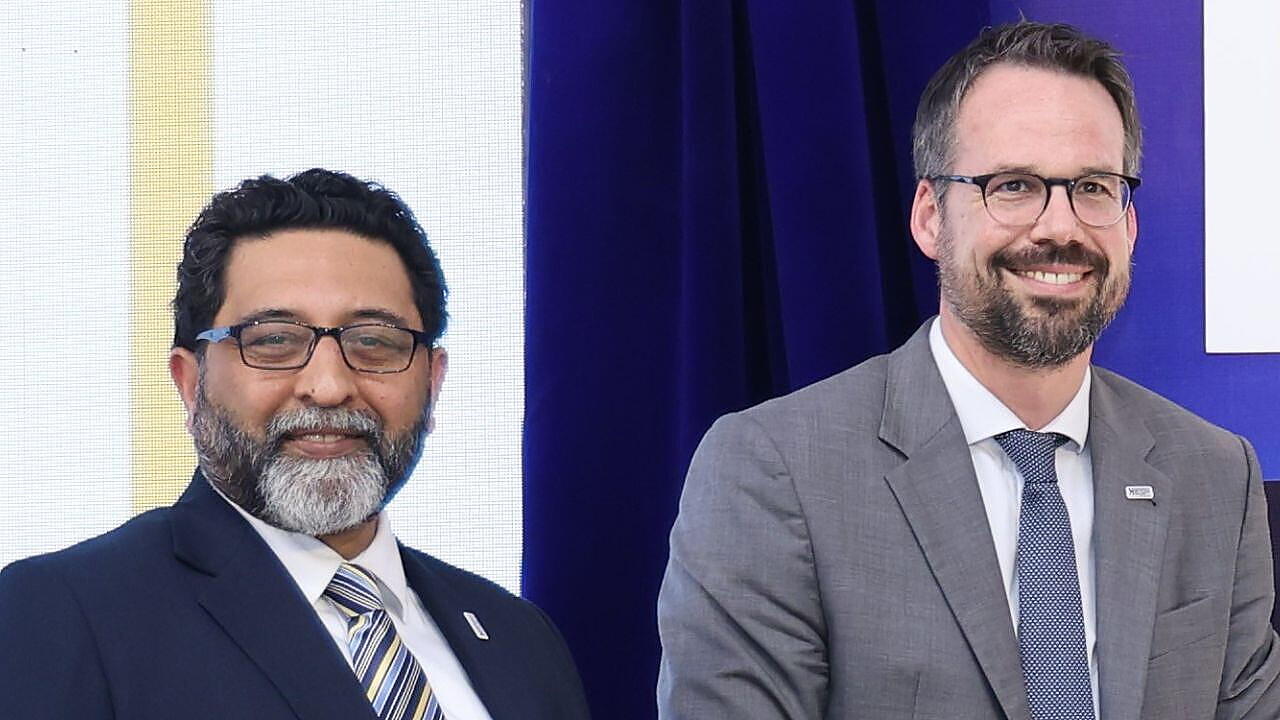
As Hengst, the renowned German filtration company, celebrated its 65th anniversary, it marks a significant milestone with the establishment of its wholly owned subsidiary Hengst Filtration Private Limited (HFPL) in India and opening a manufacturing facility in Bengaluru.
A few days ago, HFPL began its operations in a leased facility at the Hi-Tech Aerospace Park, marking an investment of approximately €2 million (INR 17 crore) in machinery, logistics, and IT infrastructure. While already serving select OEMs such as VE Commercial Vehicles, HFPL aims to expand its footprint into the aftermarket segment to bolster its brand presence and transition into an OE supplier, as stated by Christopher Heine, CEO of Hengst SE, in an interview with Mobility Outlook.
Although the manufacturing lines are new, they have undergone preliminary testing and debugging over the past few months. Sandip R Mehta, Managing Director of HFPL, highlighted that the company has also prioritised training its personnel to operate the state-of-the-art equipment efficiently. Emphasising India's significance as a strategic market and a potential hub for exports, he said the company will capitalise on the diverse opportunities available.
Evolution
From a global standpoint, Heine, looking at the diverse landscape within the filtration industry, stressed the importance for each company to carve its niche effectively. Hengst initially focused on delivering fuel and oil filter modules for the commercial vehicle sector, pioneering metal-free filter innovations. Over time, it expanded its portfolio to include industrial filtration solutions, addressing needs ranging from enhancing indoor air quality to hydraulic and medical filtration applications.

As technological advancements evolve, filtration requirements shift from particle filtration to gas removal, necessitating continuous adaptation. Despite these changes, Heine acknowledged persistent challenges, including customer retention, acquisition, and expanding business with existing clients. Hengst's approach prioritises tailored solutions aligned with customer-specific environmental initiatives, refraining from offering cheaper alternatives to meet regulatory standards.
New Opportunities Ahead
On a global scale, approximately 45% of Hengst's business stems from automotive OEMs, with 35% from the aftermarket sector and the remaining from non-automotive segments. As emission standards continue to evolve, the need for efficient oil mist separation has become paramount. Fuel filters have gained heightened significance due to the detrimental impact of injector corrosion on engine longevity and performance.
To address these challenges, Hengst has developed a sophisticated multi-stage fuel separation system. While this solution may entail higher costs, its efficacy in enhancing engine performance and longevity is unparalleled, he said. Moreover, with the emergence of fuel cell and hydrogen internal combustion engine (H2 ICE) technologies, there is a growing demand for air intake and other filtration solutions. Given the potential safety hazards associated with hydrogen presence in exhaust emissions, the importance of reliable filtration systems cannot be overstated.
Regardless of the powertrain solutions adopted, Hengst anticipates a surge in business opportunities, driven by the evolving automotive landscape and the increasing emphasis on environmental sustainability. Maintaining its ethos as a family-owned enterprise, Hengst values personal relationships and fosters long-term partnerships, a principle upheld in its business practices today.
Navigating Electrification Disruption
Despite the rise of electric vehicles (EVs), the company remains unfazed, primarily due to its stronghold in the commercial vehicle sector. Approximately 70% of its automotive business is derived from commercial vehicles, with the remaining 30% attributed to the passenger car segment. According to Heine, the growing demand for transportation services ensures a steady stream of opportunities, even in the face of electrification trends.
While acknowledging the increasing adoption of electric propulsion systems, the company remains confident in its ability to navigate and capitalise on emerging opportunities. With a robust presence in the commercial vehicle market, the company is poised to leverage its expertise and expand its offerings to meet evolving industry demands.
Advantage India
HFPL's foray into the Indian market begins with a strategic focus on customers prioritising sustainability. 'Sustainability is not just a buzzword; it's a tangible commitment. We aim to engage with customers where we can genuinely enhance value by addressing pain points and meeting specific needs,' stated Mehta. Leveraging its patented portfolio, the company aims to tap into the aftermarket segment, identifying opportunities to cater to customer requirements effectively.
With a keen eye on aftermarket dynamics, HFPL recognises significant potential, with an average of three filter units sold for every vehicle during the warranty period. By introducing anti-counterfeit measures, the company aims to extend its market reach further.
While co-development initiatives with OEMs will primarily be managed at headquarters, HFPL will remain focussed on delivering innovative solutions tailored to customer demands. The company's global footprint and extensive case studies enable it to offer proven filtration solutions designed to enhance performance and longevity. Recent case studies from colleagues in Singapore have demonstrated significant improvements, with customers testing products up to 100,000 kilometers and beyond, showcasing the potential for enhanced filtration lifespans, he said.
Upcoming Production Milestone
The next product slated for manufacturing at the facility will be the fuel filter, with production set to commence in 2026. This expansion may necessitate the addition of a couple of supplementary cells within the manufacturing setup. The plant's adaptable and flexible production lines are well-equipped to manage the manufacturing process for multiple products with similar geometry, providing versatility and efficiency, Sandip signed off.
Also Read:
PV Sales Drive Automotive Filters Market To Reach $ 23.1 Billion By 2026